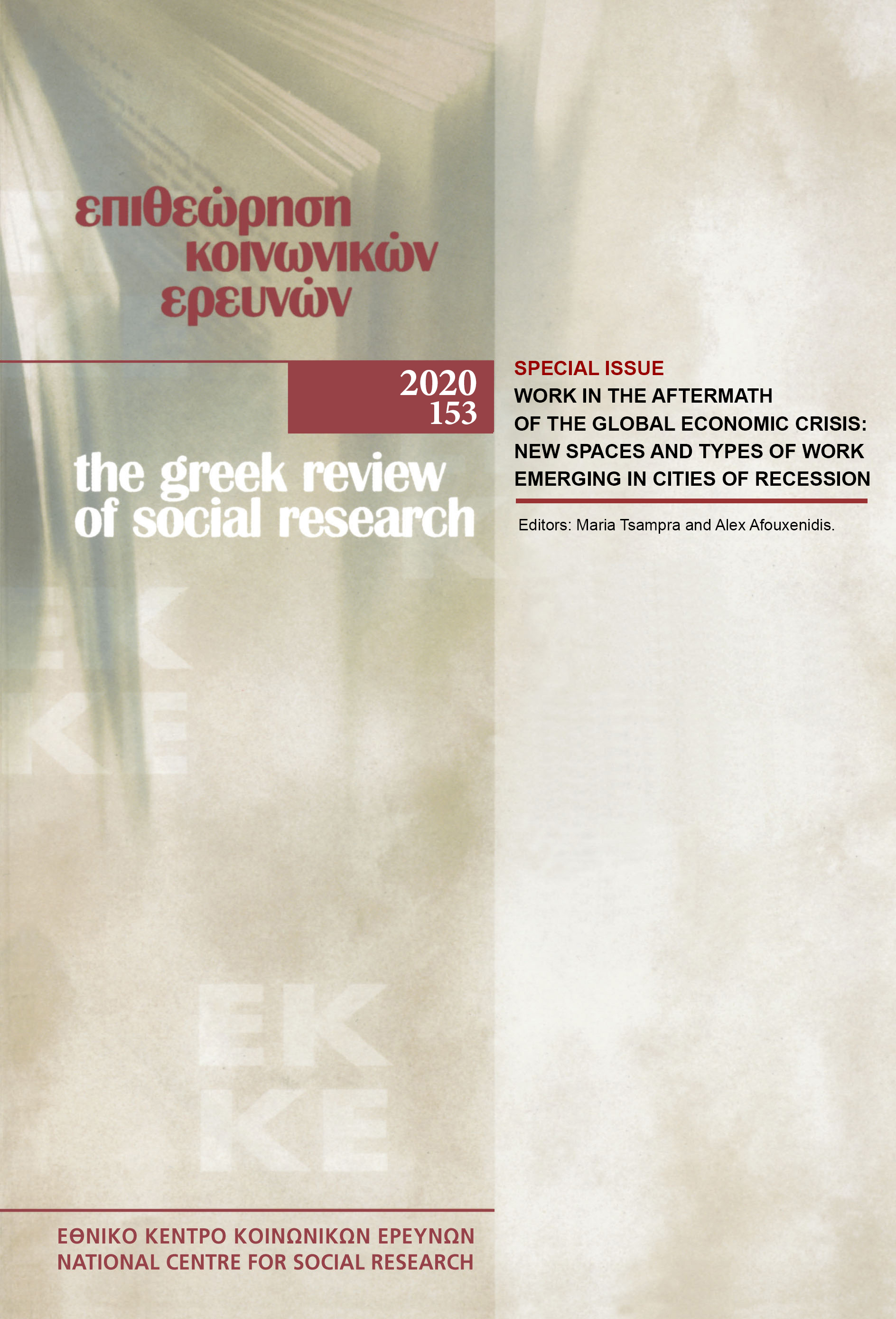The emergence of desperate optimists: Μanaging the start-up working life in times of crisis

Abstract
The deepening of sovereign debt crisis has resulted into the increasing visibility of coworking spaces, hubs, and start-ups which have all proliferated in the Athenian downtown area. Due to poor job prospects, an on growing number of high-skilled young employees have been engaged into entrepreneurial activities. This paper offers vivid accounts of the ways young entrepreneurs manage their start-up working life by analyzing its qualities and the ways they shape their entrepreneurial self. As this qualitative study reveals, young entrepreneurs have a demanding working pattern that directly affects their work-life balance. However, despite its precarious and uneven nature, entrepreneurial career is experienced as a highly rewarding and creative choice. At the same time, young entrepreneurs repudiate necessity being as one of their fundamental entrepreneurial motives and they consistently brand themselves as passionate and aspiring individuals. By being based at a hub and pursuing entrepreneurial activities that hold the promise of getting paid doing what they love, I argue that we currently witness the emergence of “desperate optimists”: a workforce which eagerly accepts its precarious conditions of work, cultivates a deep and profound connection with their occupation and for that reason undertakes the risk of acting entrepreneurially.
Article Details
- How to Cite
-
Papageorgiou, A. (2020). The emergence of desperate optimists: Μanaging the start-up working life in times of crisis. The Greek Review of Social Research, 153, 141–166. https://doi.org/10.12681/grsr.22344
- Section
- Articles

This work is licensed under a Creative Commons Attribution-NonCommercial 4.0 International License.
Authors who publish with this journal agree to the following terms:
- Authors retain copyright and grant the journal right of first publication with the work simultaneously licensed under a Creative Commons Attribution Non-Commercial License that allows others to share the work with an acknowledgement of the work's authorship and initial publication in this journal.
- Authors are able to enter into separate, additional contractual arrangements for the non-exclusive distribution of the journal's published version of the work (e.g. post it to an institutional repository or publish it in a book), with an acknowledgement of its initial publication in this journal.
- Authors are permitted and encouraged to post their work online (preferably in institutional repositories or on their website) prior to and during the submission process, as it can lead to productive exchanges, as well as earlier and greater citation of published work (See The Effect of Open Access).


